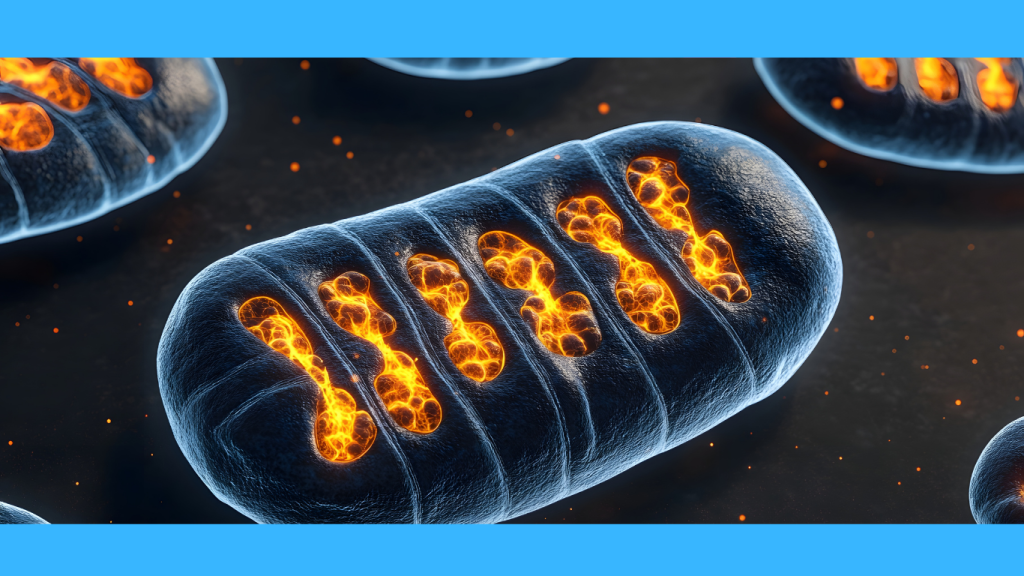
Category: Cellular Energy & Wellness
Date: November 1, 2025
Published by: Yarima.org Editorial Health Team
Every heartbeat, every breath, every thought — all depend on the tiny power plants inside your cells called mitochondria.
Often referred to as the “powerhouses” of the cell, mitochondria convert nutrients into the energy your body needs to function, move, and repair itself.
But when mitochondria become weak or damaged, energy drops, cells struggle to perform, and the effects ripple through the entire body — from fatigue and brain fog to poor metabolism and faster aging.
⚡ What Are Mitochondria?
Mitochondria are small structures found in nearly every cell in the body. Their main job is to produce adenosine triphosphate (ATP) — the molecule that fuels all biological processes, from muscle contraction to hormone production.
Each cell can contain hundreds or even thousands of mitochondria, depending on how much energy it needs. For example, heart and muscle cells have many because they constantly work.
⚠️ What Damages Mitochondria
Like any engine, mitochondria can wear down over time, especially under poor lifestyle conditions. The most common threats include:
- Oxidative stress from poor diet, pollution, or chronic inflammation
- Lack of nutrients such as B vitamins, magnesium, and CoQ10
- Sedentary lifestyle and low oxygen flow
- Excess sugar and processed foods that overload energy pathways
- Toxins, alcohol, and smoking, which impair mitochondrial enzymes
- Sleep deprivation and long-term stress, which deplete repair mechanisms
When mitochondria are damaged, energy production drops, cells accumulate waste, and the body begins to show signs of imbalance — tiredness, memory lapses, slower metabolism, and reduced physical endurance.
🔋 How to Support Mitochondrial Health
Healthy mitochondria are built on consistent daily habits. Supporting them helps your body stay strong, alert, and resilient.
✅ Nourish Your Cells
Choose foods that support energy metabolism and cellular repair:
- Leafy Greens & Vegetables – rich in magnesium and antioxidants
- Lean Proteins & Omega-3s – essential for cell membranes and enzymes
- Berries & Citrus Fruits – reduce oxidative damage to mitochondria
- Nuts, Seeds & Whole Grains – provide healthy fats and trace minerals
- Olive Oil & Avocado – stabilize energy and reduce inflammation
🏃♀️ Strengthen with Movement
Regular exercise is one of the most powerful ways to boost mitochondrial function. Activities like walking, swimming, or strength training stimulate cells to produce more mitochondria — a process called mitochondrial biogenesis.
This helps your body become more efficient at producing energy and burning fat.
😌 Restore Through Rest & Recovery
Mitochondria need time to repair. Deep sleep allows the body to remove damaged components and create new, healthy mitochondria. Stress management techniques — such as breathing, meditation, or nature walks — also reduce the oxidative pressure that wears them down.
💬 When to Be Concerned
If you often feel exhausted despite rest, struggle with poor focus, or have slow recovery after exercise, your mitochondria may be under stress. A healthcare provider can help identify nutrient deficiencies or metabolic imbalances affecting energy production.
💡 Key Takeaway
Your mitochondria are the foundation of your energy, vitality, and longevity.
Protect them through balanced nutrition, regular movement, restorative sleep, and stress reduction.
Healthy mitochondria mean a stronger body, a clearer mind, and the energy to live fully — from the inside out. ⚡